Germantown Generations
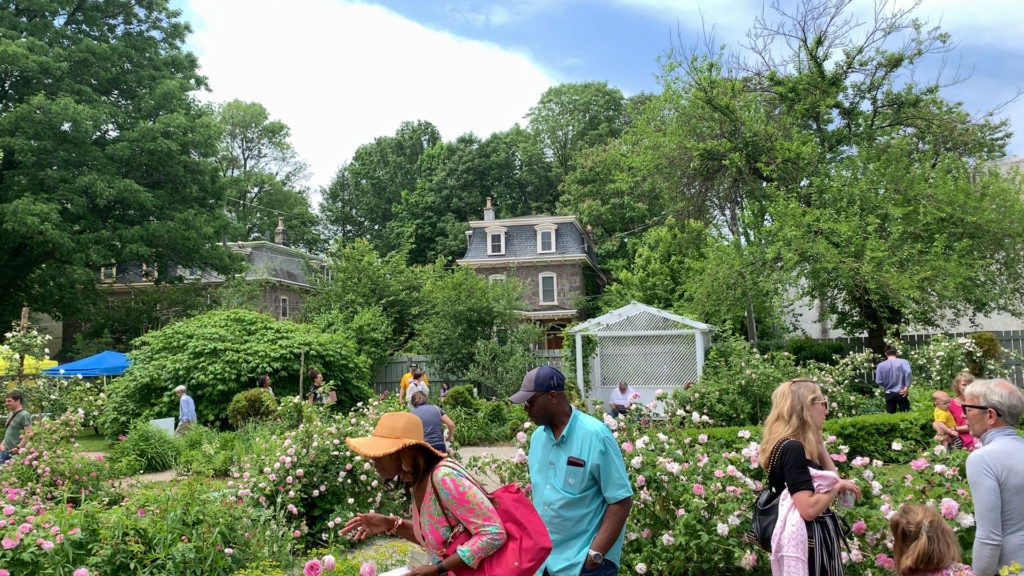
Germantown’s historic homes, towering trees, local businesses, and dynamic arts scene are the result of the families and individuals who live in, engage with, and invest in the neighborhood, and some have been here for many generations. Together these “placeholders”, to borrow a term from Catherine Brown, have transformed a geographic area into a community.
As Germantown grapples with gentrification, long-time community members are concerned that with rapid development and turn over, space will not be held for the placeholders.
Press the red “play” button to hear a bit about what it is like to grow up and/or settle down in Germantown.
Breaking Bread Together
“I didn’t live in my grandmother’s house growing up. I was born there, but we lived next door to one another. So, my mother bought her house next to her parent’s house and so it literally was born and raised on the same block in Germantown which is East Rittenhouse Street. And then right across from me, there were two other families doing the same exact thing. Grandmother, mother, and our generation-age young people all living in the same home. And actually when I think about it, for several blocks that’s how we were. And so it turned out to be a big family of just Germantown families, generations of us, born and raised and I still to this day call us now “place holders” like we were families who stayed in place.
My grandmother was the person who cooked a lot. My mother also was a person who loved to cook as well. But my grandmother always had something on the stove. The gas stove, and the two illegal pot belly stoves. That was literally in the middle of our house in Germantown.
Always something on the stove. We always had dinner every night. What we did every night was a sit down dinner experience. Of course, families are so busy now you don’t really have the time to do it every night. But … my takeaway was because up until I lost my mom a couple years ago, especially with that cast iron pot, there was always Sunday dinner. And literally at my house. My mom got up every Sunday before the Hall, before service, went to the store, put dinner on, went to the Hall and came back. And guess what, even if me and my husband had snuck out on a Sunday afternoon date and weren’t very hungry, we ate dinner because she wasn’t playing. You better be ready for dinner. Sunday dinner wasn’t a, and we still joke about it today, it wasn’t a choice. You better figure out how to eat. I don’t care what you did all day. . . But when my grandmother was no longer able to cook, my mom took it. And then of course when me and mommy started cooking together, she brought it to my house so it stayed there. When I lost her, it then passed on to me.
When we were talking about doing this story, at first I wasn’t sure, I thought what should I use? First of all, eating together as a family is what creates your bond. That’s why when people go on dates they go out to dinner because you bond over eating. The dinners and the chicken a la King, which I never really liked but my mother loved to make it! The different things that came out of this. And we sat down and we broke bread together. For me, every time I think of this pot, this is us! Generations all that I can remember back to. This is us. And we all had hands-on. This is our hands-on piece. This is a big piece of what brought us together. The dinners, the pot, the stuff I liked, the stuff I didn’t like. Sit around look in each other’s eyes to make sure we are ok. So, that’s it right there!”
– Catherine Brown
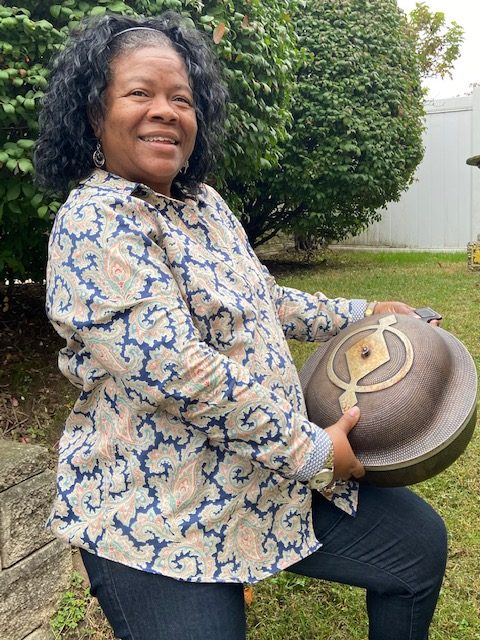
From Wyck House, Garden, & Farm
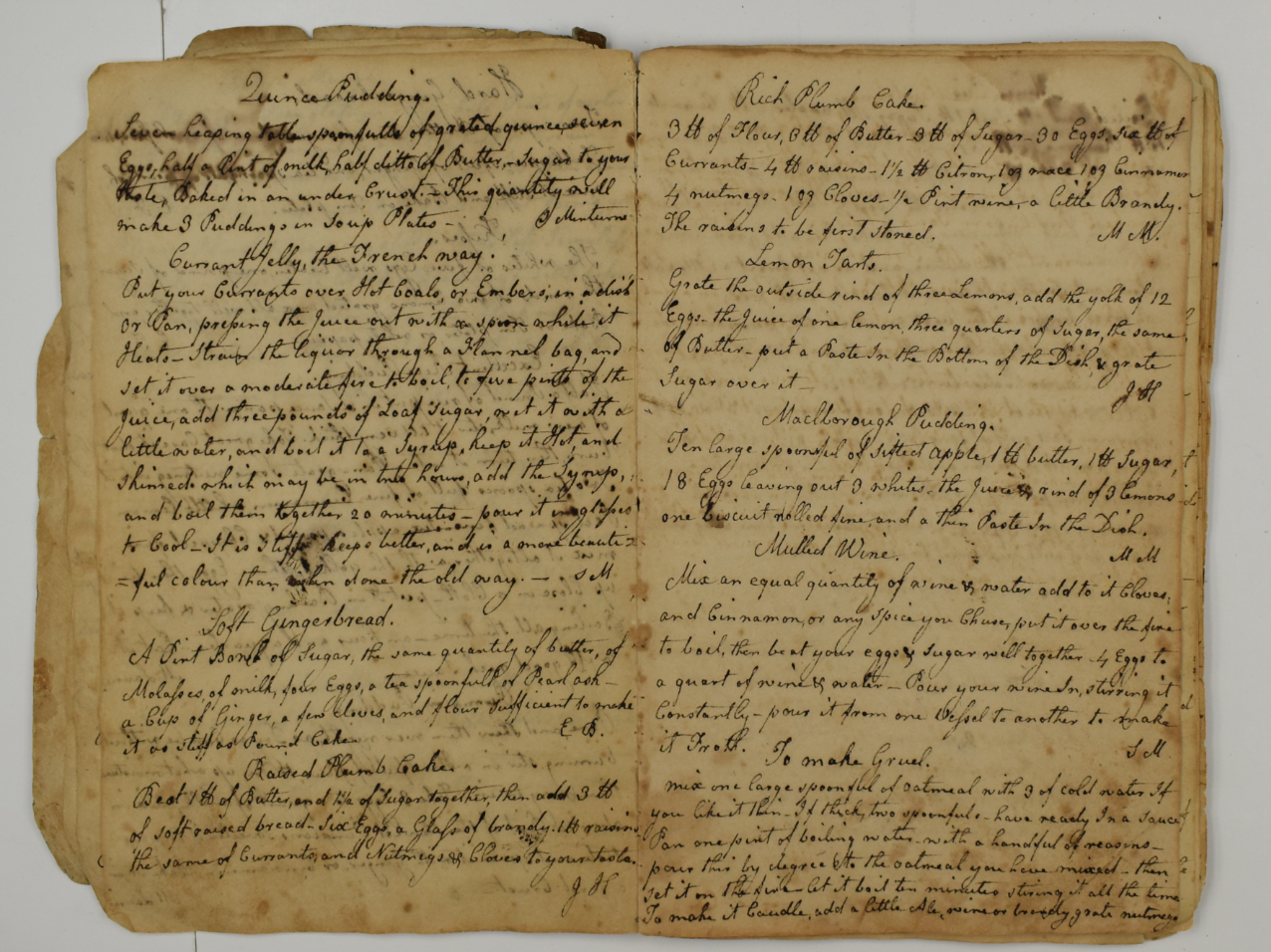
As noted by Cathy Brown, cooking and eating ties generations of families and neighbors together. This recipe book (above) that belonged to Hannah Marshall Haines (1765-1828) reveals a network of recipe sharing. Each entry is attributed to a different friend of Hannah’s who broke bread with her. For example the “Rich Plumb Cake” is attributed to “M.M.” while the “Mulled Wine” recipe came from “S.M.” The Lemon Tart recipe from “J.H.” was likely shared with Hannah by her daughter-in-law, Jane Bowne Haines, who lived with her at Wyck.
Wyck still makes the “almond mackaroons” and “New Year’s Cakes” found in this book. They are savored together among neighbors and friends at events such as the Rose Tea, where Friends of Wyck gather to enjoy historic and modern treats and each other’s company. See Wyck’s calendar of events to join us!
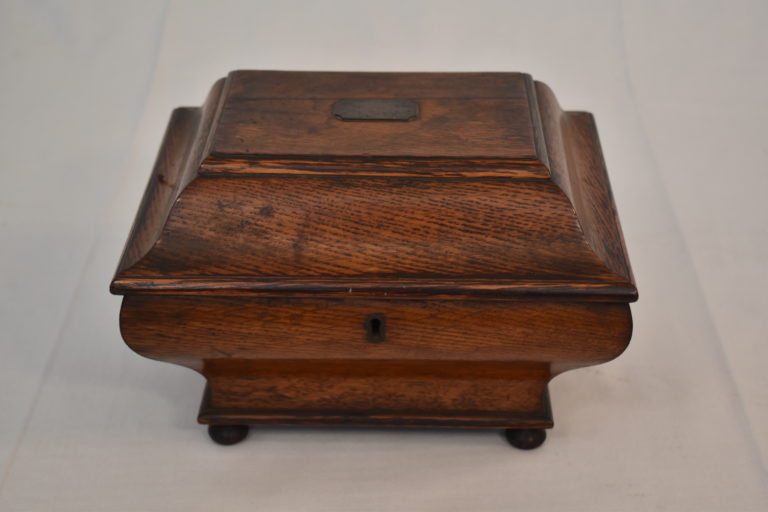
This tea caddy was made in the early 1840s from “one of the old oak trees at Flushing L.I. under which George Fox preached the gospel A.D. 1672.” Jane Bowne Haines, whose initials are engraved on the top, left it to her daughter, Jane Reuben, before passing away in 1843. In 1886, Jane Reuben passed the box to the next generation. She presented it to her niece, Jane Bowne Haines as a 17th birthday present.
This heirloom, which has been at Wyck for 180 years, is one of thousands at Wyck which have been passed down through the generations, bonding mothers, daughters, and grand-daughters across time.
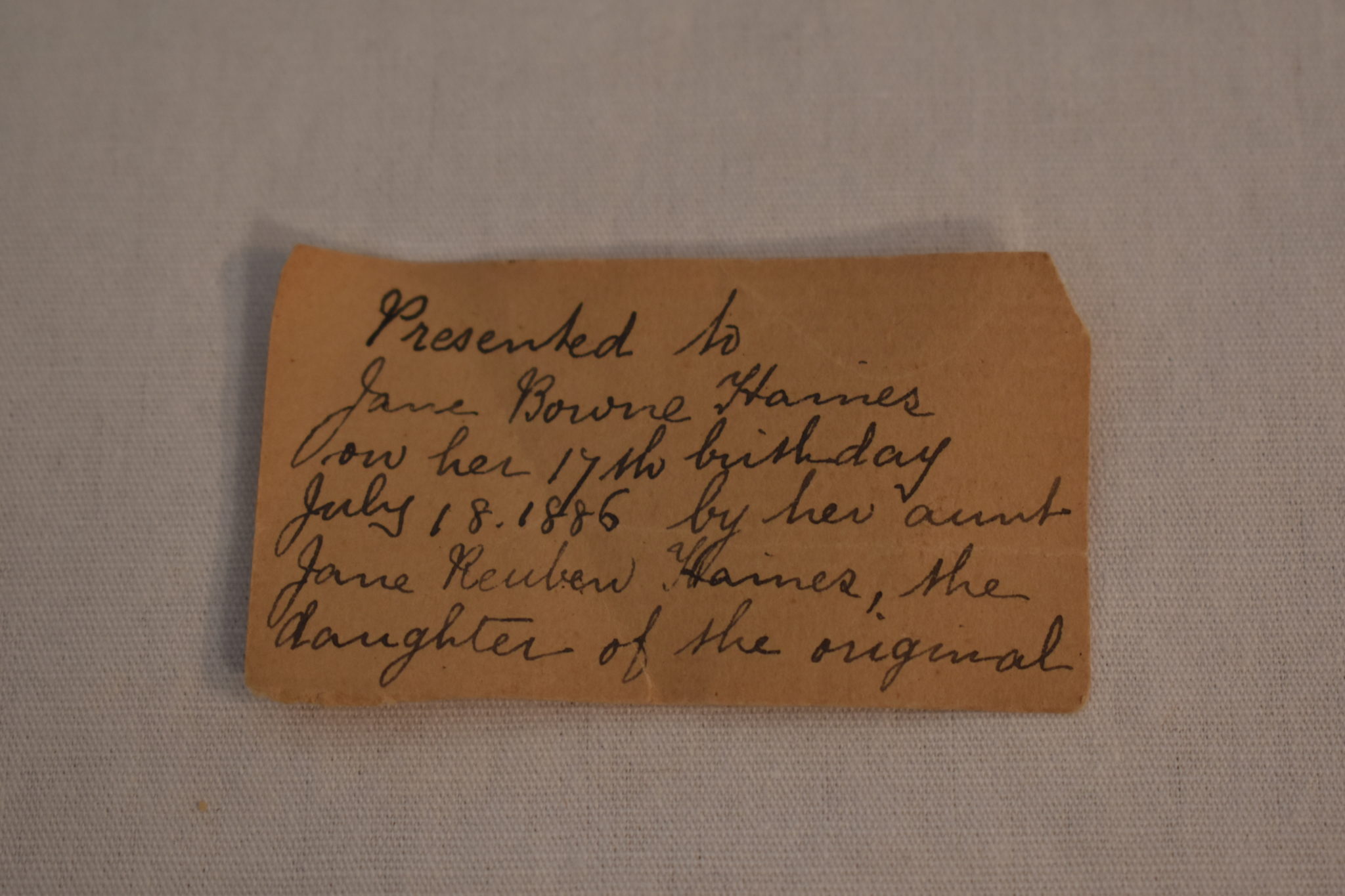
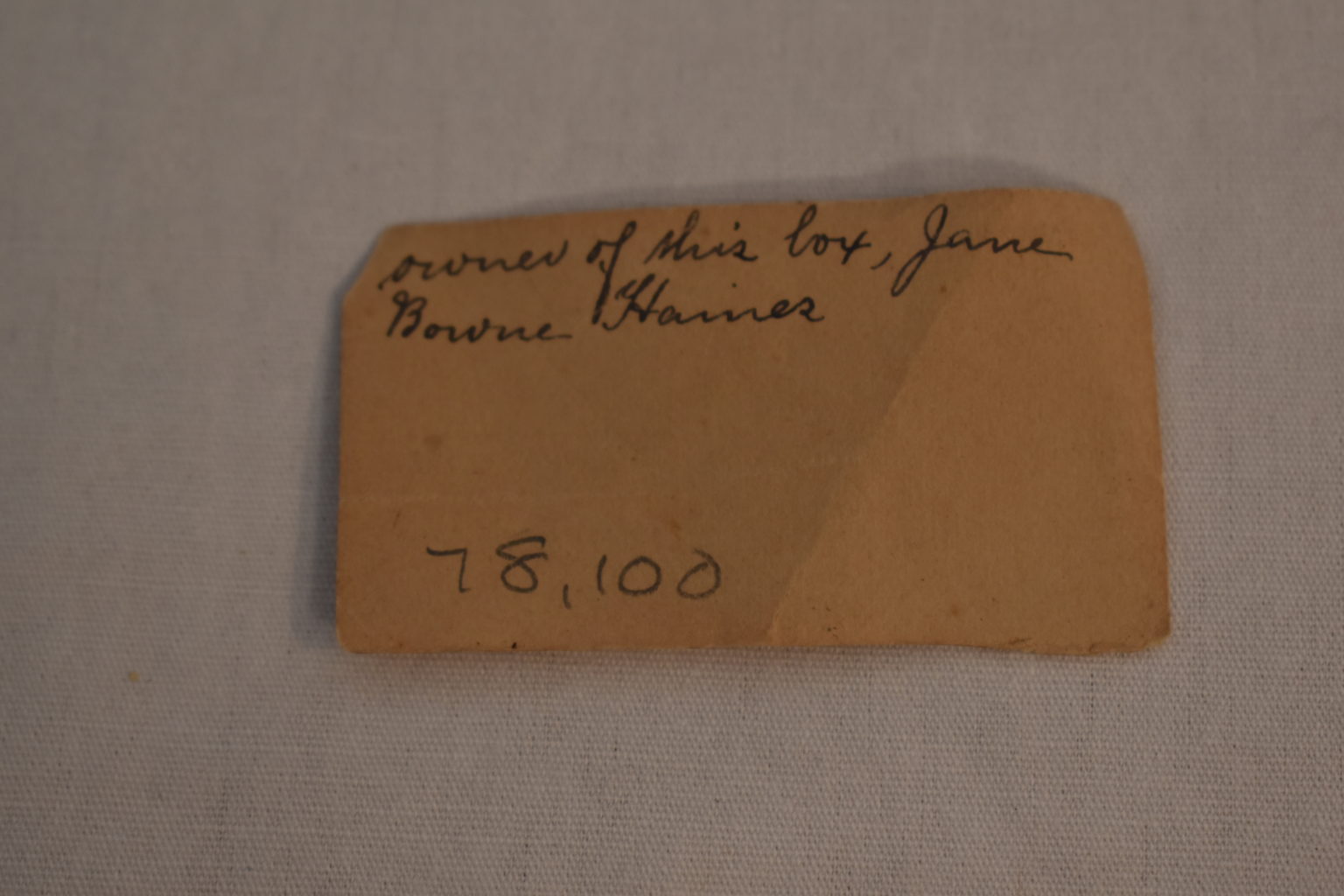
Digging Deeper
“The end is something we all want: we want a community that will maintain… the people that are here while lifting it and being able to bring in the services and the resources that everybody needs – the newcomers and the ones that have been here. But, again the work that it takes, because that means that you may not have to be at the helm and that is a tough pill for some people to swallow that your word doesn’t mean anything here if you are not a part of this collective community voice. I don’t think there are a lot of folks that hold that power that truly understand what it means to make space for other people.
In our history there is a need to dig deeper. On the surface everything looks good but underneath it, there is very little equity in how resources are pushed. Who can sit at the table, how they are sitting at the table, Who owns what, how power and money those voices are louder.
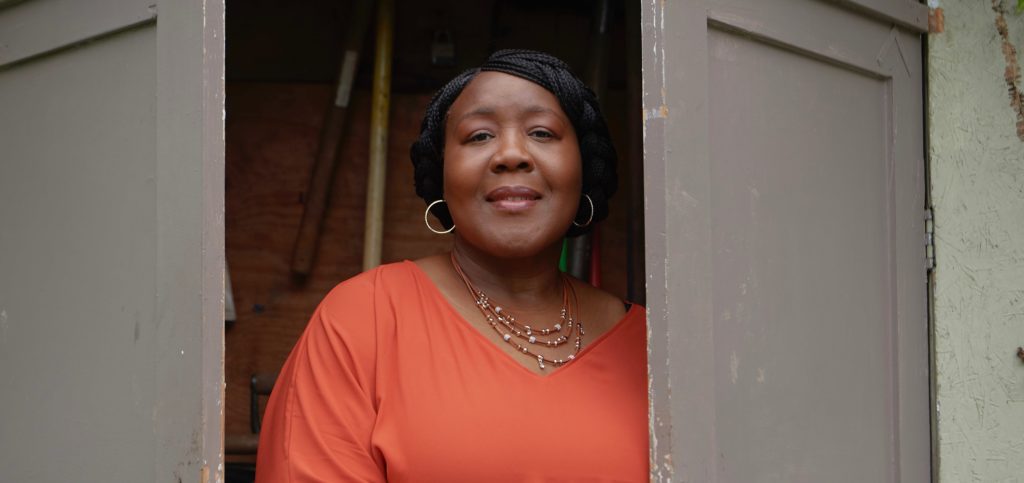
There are so many people in this great community who are doing work to lift up the voices of other people. But I think we would be telling ourselves a real lie if we didn’t deal with the fact it is not an equal Germantown, it is two different Germantowns.
[…] So I look for the peace in the place. This place offers a lot of beauty, lots of beauty. If you take advantage of it, it will feed you spiritually it will feed you artistically, humanely, I mean this is a magical place.”
– Trapeta Mayson
From Wyck House, Garden, & Farm: Gathering Together on the Farm
Wyck’s historic farm is still active today as a 1/2 acre vegetable and herb garden where the Home Farm Club takes place April through November. Home Farm Club is a collaborative gardening program that provides short lessons, hands-on experience, and a share of fresh produce at no charge to participants. It has become a a gathering place for Wyck’s neighbors. The program began in 2018 as an effort to reactivate a fallow field with the aim of engaging new visitors, providing greenspace and food resources to participants, and preserving the historic home farm that has abutted Wyck House for more than three centuries.
In 2021, Wyck. will be offering free monthly workshops highlighting local culinary, history, and horticultural talents, and increasing the open hours of the farm. Check out the calendar here. Want to get involved? Email info@wyck.org!
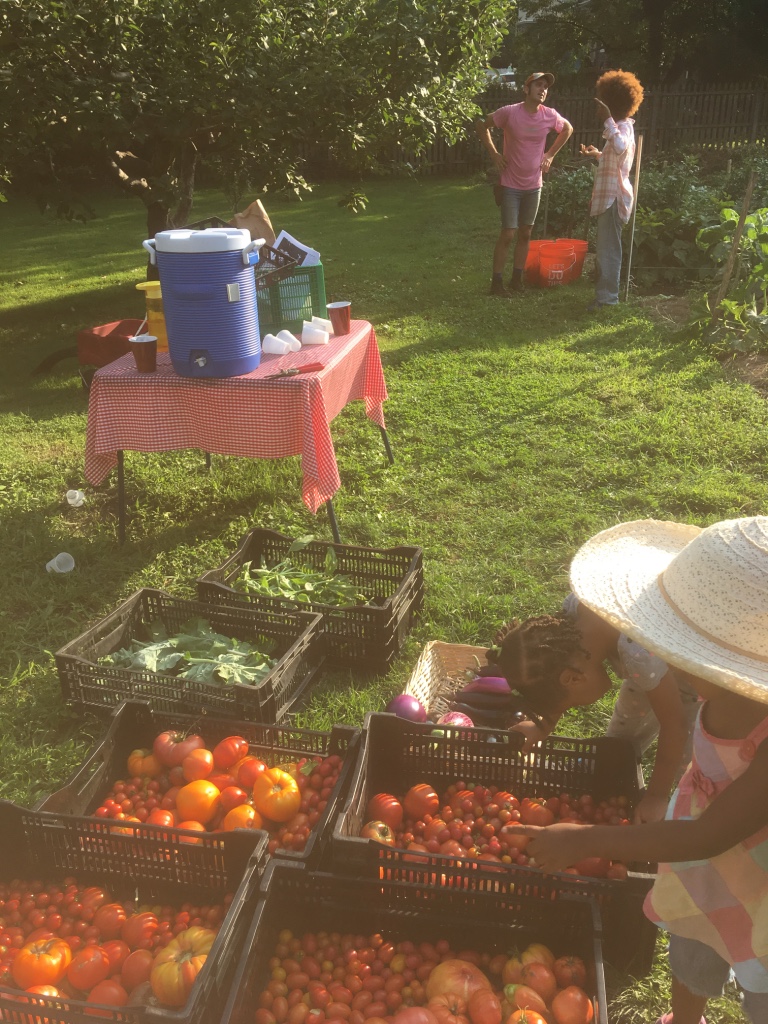
Staying Power
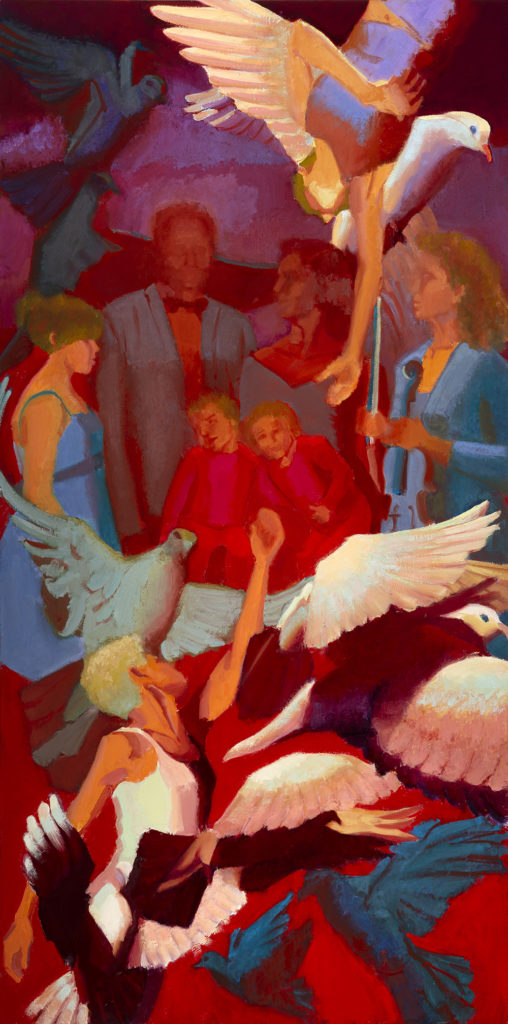
“I’ve heard that there’s two kinds of storytellers. There is the storyteller that stays home and tells all of the stories of the village and the storyteller that goes to far away lands and tells the stories of the far away lands. But I guess I have always been the first kind of storyteller, so I am perfectly happy to stay in Germantown. A little too happy. And would also say that a lot of what I have been able to do in my life I got really lucky and this building was here, and it was very affordable. It was very affordable so I could afford to start this tiny little school in my studio and not have to earn that much money. It is a thing that I am really concerned about that everything is getting so much more expensive. My building and also Germantown is changing in a way that concerns me which concerns me. I am concerned about it becoming […] One of the special things about it has been that it is in reach for so many different kinds of people. I see that changing and that’s really a big concern for me. I am concerned about it getting swept up in the goal of creating wealth rather than creating things that the people who live here need.
I think honestly not to wax poetic, but it is like we are in the middle of an election that has been really brutal, like a really, really brutal thing. I am just going to say what’s on my mind which is we are really in a battle for the soul of the nation. And I think the nation has both strands and I think Germantown has both strands. . . And I have heard so many people say I am going to move to Canada. It’s like “Move, I am not moving anywhere. I am not moving one block.” The point is not to move, the point is to stay. The point is to stay right here myself, my neighborhood, where I am. And try to figure out how to do something here. This is a great place to try to do something.”
– Mindy Flexer
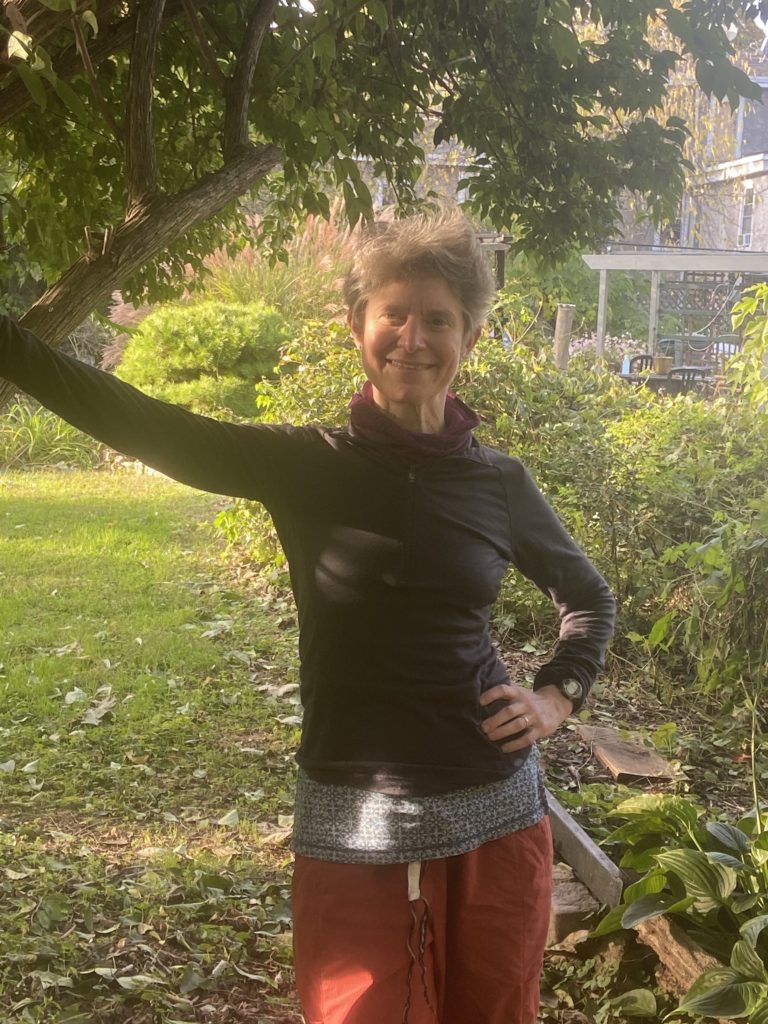
As these interviews have demonstrated, Germantown is a dynamic community. Want to learn more or get involved? Here are some community organizations leading the charge for maintaining and growing community in Germantown.
- Germantown Info Hub
- Germantown Community Assets created by Germantown Info Hub
- Germantown United CDC
- West Central Germantown Neighbors
Want to see a specific community resource listed here? Email info@wyck.org to make a suggestion!
What experiences do you have taking part in the community? Feel free to comment below, or if you'd like to add an oral history to this exhibit email info@wyck.org!
Explore more aspects of Germantown’s unique community, past and present, through the portals below!



Copyright © 2025 Wyck. Powered by Museo Lite

One Reply to “Germantown Generations”
This makes me love Germantown even more! Bravo!
Comments are closed.